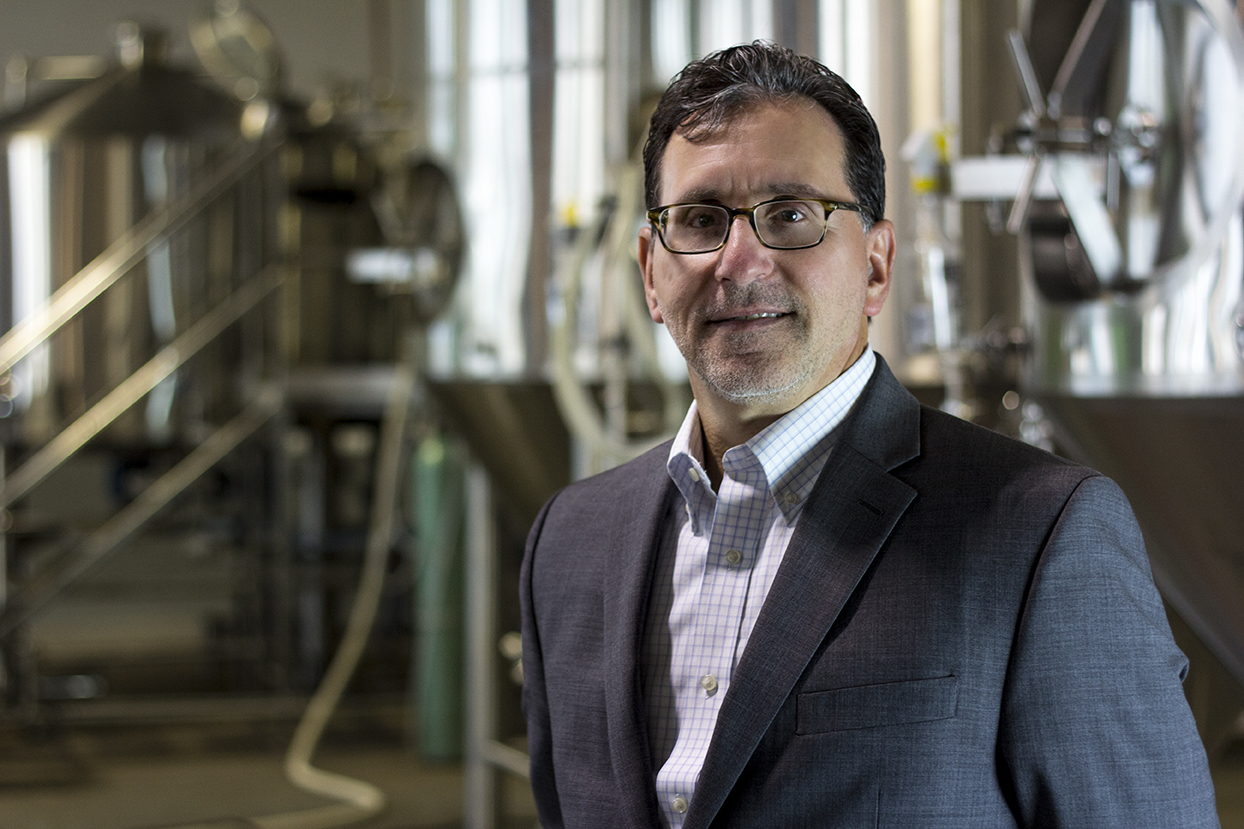Q: What do you call spirits distilled from beer?
A: Not “Spirits Distilled from Beer.”
Every now and then we see a “Bierschnapps” or a “spirit distilled from beer.” But even though beer is the main ingredient, most of the U.S. approvals seem to avoid any reference to “beer” or “bier.” It seems that TTB is not in favor of spirits labels that refer to beer.
In the above example, Woodstone Microspirit seems to be, pretty much, just spirits distilled from beer. Even though the producer probably wanted to describe it as “bierschnapps” on the label, the main description is “Spirits Distilled from Grain and Hops.” The producer, back in 2008, set forth his frustrations here:
Beer Schnapps as a label has not been approved by the TTB for 4 months 3 tries and counting, the formula from the local microbrewery was accepted on the 2nd time through. Its been over 2 years so far and it is fighting me every step of the way. … We are now re-submitting the product with a fanciful name and not calling the product beer schnapps at all.
TTB seems to have allowed a reference to ale but not beer.
Classick is another example of a bierschnapps. I have not been able to find the label approval, but the San Francisco Chronicle discussed the product in 2002:
Bierschnaps, the liquor in question, is relatively unknown outside of its place of origin, Bavaria, Germany. It is made from beer that has been distilled into a clear, 80 proof spirit similar to premium vodka. … Even the Bureau of Alcohol, Tobacco and Firearms hadn’t heard of the spirit, so the government officials insisted that Classick and Mirenda provide samples of German bierschnaps to prove its legitimacy. … Four hundred regulations later, in November 1999, Essential Spirits sent to the shelves its first bottle of Classick Original American Bierschnaps, which is distilled from the company’s own micro-brewed California pale ale. In April 2000 came a partnership with a major craft brewer, introducing Sierra Nevada Pale Ale bierschnaps.
TTB has liberalized in many areas and yet various and sundry pockets of great strictness remain.




Its very surprising to see that the US approval authorities do not allow “beer” to be used anywhere on the bottle. I think the main reason not to allow it is to protect the underage kids from having it and not letting them know what that bottle basicaly is.
Have the TTB laws about distilling beers or referring to beers changed much since 2012?
Probably not much.
Dealing with the TTB on this issue has been a royal pain. I have not found any specific written guidance on this topic but they seem to somewhat randomly approve and reject various labels. And their process does not allow any opportunity to discuss it with them to try to understand what we should do. We just got a label rejection again, this time for items that were previous approved on another label.
How does the industry try to address a new type of spirit with the TTB and get clear guidance on label requirements?
It’s not as easy as it used to be, to talk directly with a helpful person at TTB, but it’s still possible.
The TTB is our #1 Obstacle facing us as a American Distiller!
I would love some commonsense from the TTB when applying for recipe and label approval.
My newest obstacle is getting approval on Barrel finished whiskies.
I have 40 barrels of bierschapps aging away for the day the TTB becomes helpful to our
Small American Companies or I might just go bankrupt.
Don’t even get me started about the State of California.
Is it really that bad, Brendan? Now that TTB allows absinthe, risque labels, etc., etc., it seems like there is usually a way to get most reasonable things done.